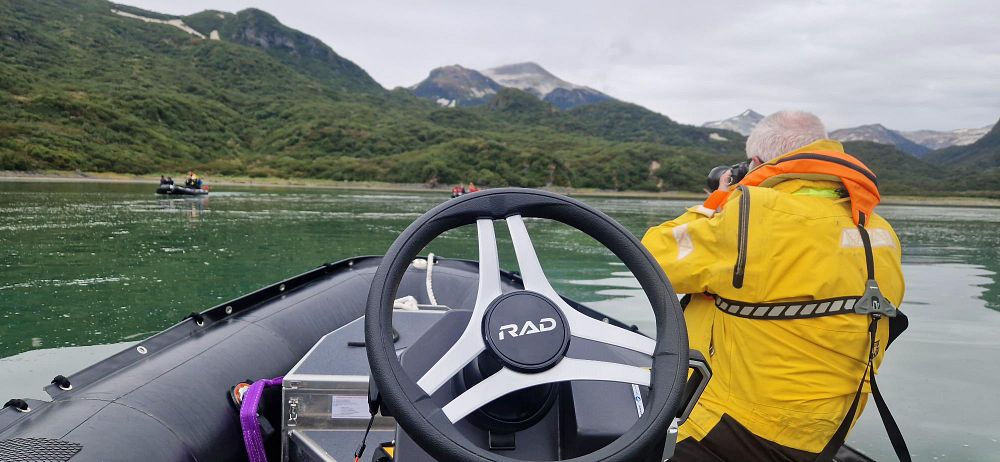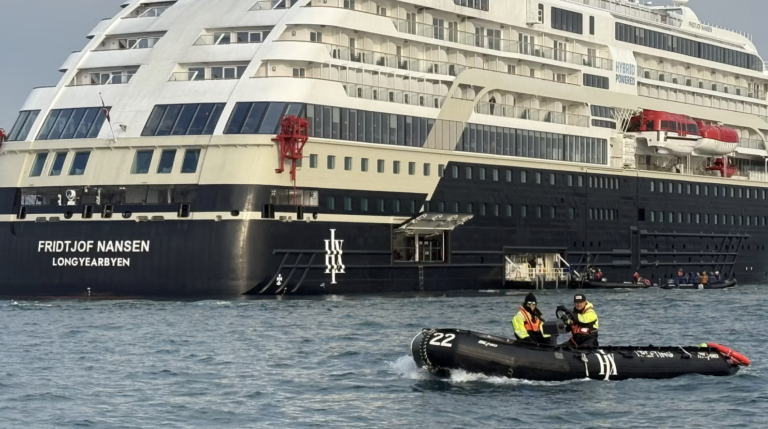Expedition cruise company HX Expeditions has announced the launch of two new electric science boats, designed to minimize underwater noise pollution. The two new MK 5 vessels, MS Fram and hybrid-battery powered MS Fridtjof Nansen, are fully electric and feature RAD Propulsion‘s RAD 40 drive system. They will operate in the Arctic and Antarctic, where they will be used predominately for the company’s science teams, guest science boat trips and for guest scientists conducting research.
The introduction of the electric Zodiacs marks a step toward phasing out traditional ICE engines. These vessels enable silent discovery in remote destinations such as Antarctica, giving guest scientists, expedition teams and traveling guests the rare opportunity to observe and study marine life with minimal disturbance.
“Sound pollution is one of the most underestimated environmental impacts in these polar regions,” said Dr Verena Meraldi, chief scientist at HX. “For wildlife under the surface – especially whales – noise can mean the difference between thriving and struggling. With these silent boats added to our hybrid-electric ships, we’re not just enhancing the experience for our guest scientists and guests, we’re reducing our environmental footprint in the places that need it most.”
“Conducting research from HX’s new electric Zodiacs will transform the way I can study whales in Antarctica,” added Dr Ari Friedlaender, renowned marine scientist and one of the HX guest scientists who has worked with the company for several years. “The silence of these vessels compared to traditional engines allows us to approach wildlife with far less disturbance, making our observations more natural. It’s a game-changer for science in these remote environments.”

Designed within the IAATO (International Association of Antarctica Tour Operators) regulations, the new zodiacs align with all safety and environmental standards while taking a meaningful step toward a quieter future in exploration.
“These boats are equipped to transport small groups of our guest scientists, our science team and our guests who are all conducting wildlife observations, oceanographic research and biodiversity studies – now with a fraction of the acoustic interference,” said HX chief operating officer Iain McNeill. “This marks the beginning of a fleet-wide transformation. The long-term goal: to fully replace traditional combustion engine zodiacs with clean, electric alternatives across the HX fleet.”
“We’re proud to supply our RAD 40 power consoles for the MK 5 vessels, enabling fully electric operation in some of the world’s most sensitive and remote environments,” added Sam Pickering, head of products at RAD Propulsion. “Supporting clean, quiet operations in protected regions like the Arctic and Antarctica reflects our commitment to developing advanced marine propulsion systems that reduce environmental impact while delivering reliable, high-performance solutions for a wide range of applications.”
In related news, Candela to deliver 10 electric hydrofoil ferries for Thailand’s Koh Kood route



